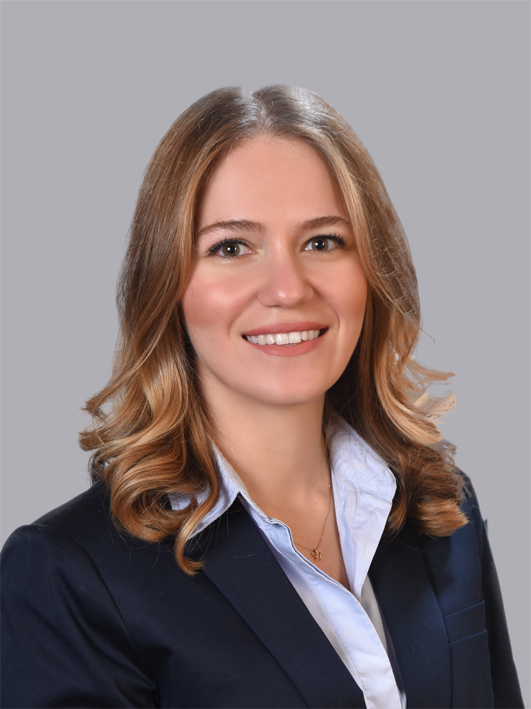CRS Scientist Spotlight on Dr. Dilan Gökyer
I believe CRS is one of those diverse scientific communities which encourages its members to engage in each other and take a step forward in their development.
Dilan Gökyer, MD
Dilan Gökyer, MD, is a postdoctoral research fellow in Dr. Elnur Babayev’s lab. Her research focuses on understanding the role of epigenetic alterations in reproductive aging.

What is your current position?
I received my Doctor of Medicine (M.D.) degree from Koç University in May 2021. I am currently working as postdoctoral research fellow at Dr. Elnur Babayev’s laboratory at Northwestern University since September 2022.
Could you describe your research?
I am currently working on a couple of different projects mainly focusing on understanding the role of epigenetic alterations in reproductive aging by utilizing the human samples (cumulus/granulosa cells and follicular fluid) we gather from Northwestern Memorial Hospital Fertility and Reproductive Medicine Clinic as well as utilizing mouse models. We would like to understand quality of eggs across different age groups comparing pediatric & adolescent group patients to egg donor patients (IRB approved). Our plan is to perform cytokine arrays on follicular fluid to investigate cytokine expression profile, and transcriptomic analysis on granulosa/cumulus cells. We aim to investigate the epigenetic alterations with reproductive aging, establish potential causal relationships between epigenome status and ovarian aging.
What aspect(s) of CRS do you find most valuable or look forward to engaging in?
I believe science benefits greatly from a community that approaches problems in a variety of creative ways. A diverse community is better able to generate new research methods, explanations, and ideas, which can help science over challenging hurdles and shed new light on problems. I believe CRS is one of those diverse scientific communities which encourages its members to engage in each other and take a step forward in their development. I am so glad to be a part of such a well-established engaging community.
What has been the most valuable aspect to your training as a scientist?
My training path is a little bit different than the expected. I have not finished a master’s degree or a PhD in order to pursue scientific studies in my career, however as a young medical doctor aspiring to pursue an academic career as a physician-scientist, I had numerous research experiences during medical school mainly on the molecular basis of cancer - brain, colorectal, and ovarian - at different institutions around the world including Massachusetts General Hospital, University of Cambridge, and Yale University. My deep appreciation and interest for reproductive biology began in medical school. I spent most of my elective rotations in the Department of Obstetrics and Gynecology, specifically in the Division of Reproductive Endocrinology and Infertility. Here, I had the opportunity to learn both clinical and laboratory aspects of the diagnosis and treatment of reproductive system diseases. I experienced firsthand that the reproductive aging and its associated issues is the biggest problem many reproductive endocrinologists face to help their patients. I believe I will utilize my knowledge in clinical reproductive medicine and my research experience in reproductive biology to further succeed in this field.
What would you recommend to junior scientists in order for them to succeed in their scientific careers?
I think the most important thing is to define the goals very early on and stick to go after them no matter what. I was not sure what I wanted to work on at all in the beginning of medical school, but I aimed to gain as much research experience as I could. You should always keep in mind that this is a long journey and could try to use the early years of your career to learn as many techniques as you can; they will help you tackle an array of problems in the future.
What do you think will be the next big contribution in your field?
Reproductive aging is characterized by a decrease in oocyte quantity and quality leading to decreased endocrine function, which results in adverse health outcomes. In modern society, women spend almost half of their lives in this sex hormone-deficient post-menopausal state. Moreover, shift to delayed childbearing in recent decades is associated with increased infertility rates and adverse maternal-neonatal outcomes. Therefore, understanding the mechanisms contributing to female reproductive aging is key to establish new strategies to extend reproductive longevity. Developing new tools to improve gamete quality with advanced reproductive age and to delay depletion of ovarian follicle pool would be the biggest next contribution in our field.
What hobbies do you have outside of the lab?
I have been dancing over 10 years, professionally at times, and I have started to enjoy going to social Latin nights to dance Salsa and Bachata in Chicago. Also, I like going to a fitness studio here which uses power plates, a new experience for me.